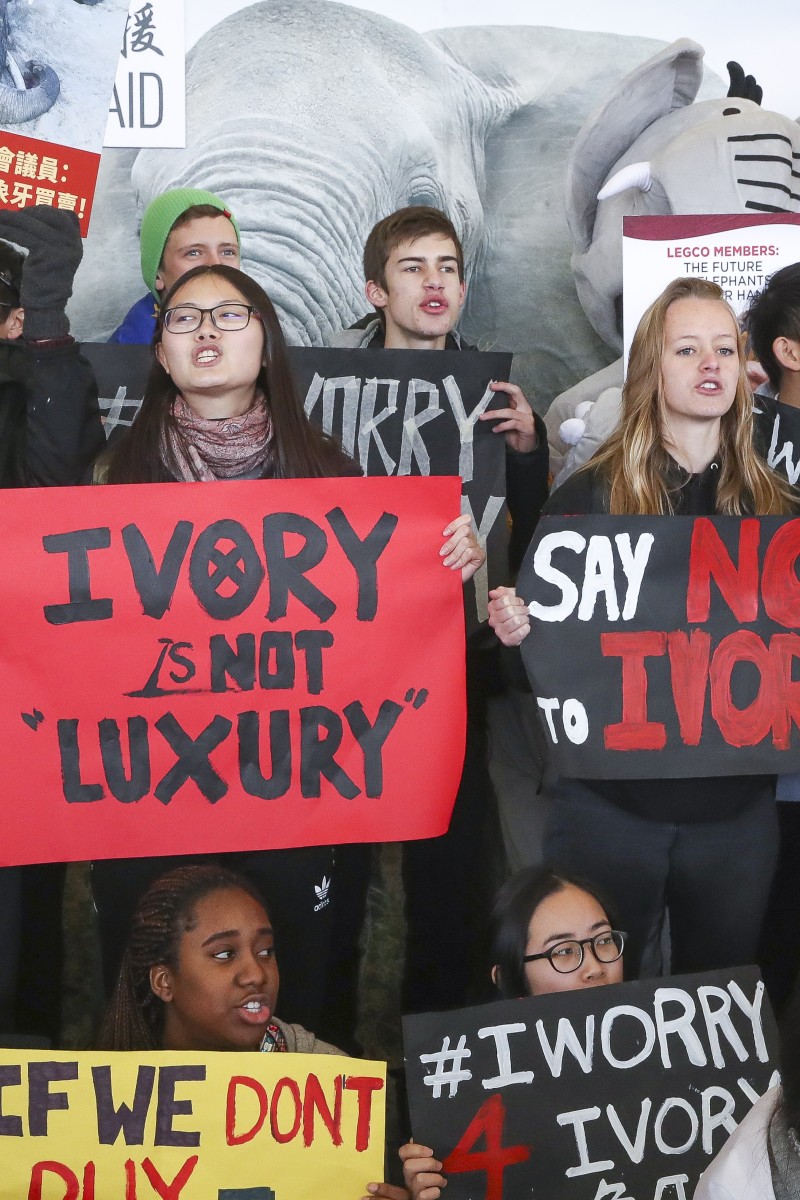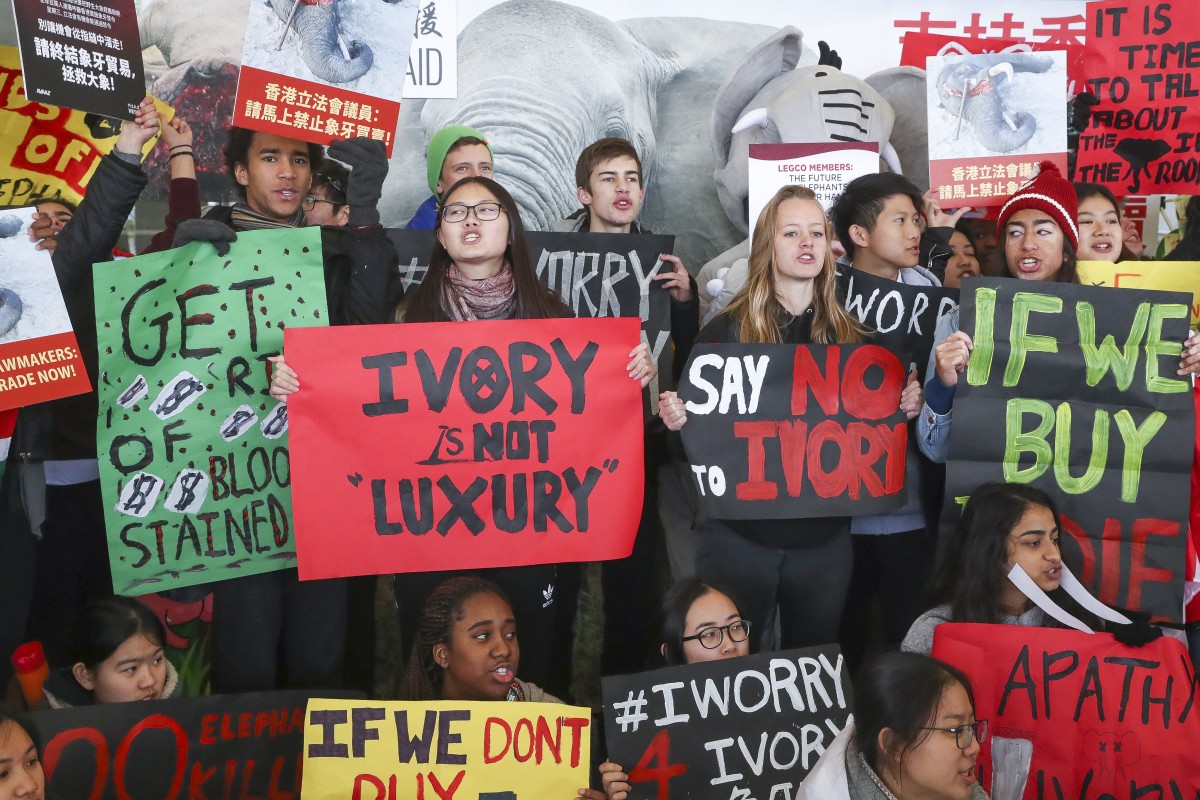
Lawmakers voted to make buying or selling elephant ivory in Hong Kong illegal, and both wildlife conservation groups and student activists are thrilled
 Elephant-loving students and WildAid supporters are calling the ban a huge victory.
Elephant-loving students and WildAid supporters are calling the ban a huge victory.A wildlife activist has called the recent vote to ban ivory in Hong Kong a huge victory.
Alex Hofford, from the environmental organisation WildAid, is happy to see lawmakers pass the bill after five years of campaigning.
By 2021, ivory will no longer be on sale legally, after Hong Kong’s Legislative Council voted last Wednesday for a ban on the “cruel business”. Under the new law, sales of elephant tusks will be slowly stopped over the next three years.
Hofford told Young Post that his organisation and other environmentalists were celebrating the decision. “We’ve got responses from 53 politicians out of a possible 63, and we won the case 49-4,” said Hofford.
But, he added, there is still work to do. “Just because we won this vote doesn’t ensure stability,” he said. “In Africa, the trade remains as bad as it is.”
Student activists from Clearwater Bay School and Li Po Chun United World College took part in the campaign to ban ivory sales. ESF Kennedy School, West Island School and Canadian International School also gave their support, said Hofford.
“This is a child-driven campaign as well. We believe that a child’s voice is more powerful than 100 adult voices. It’s really great to see them demonstrating too,” he said.
The number of African elephants has fallen by 111,000 in the past ten years, mainly because of poaching, according to the conservation group, the World Wildlife Fund. They could die out in the near future if this trend continues, experts have warned.